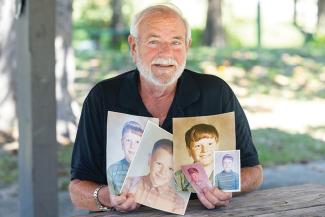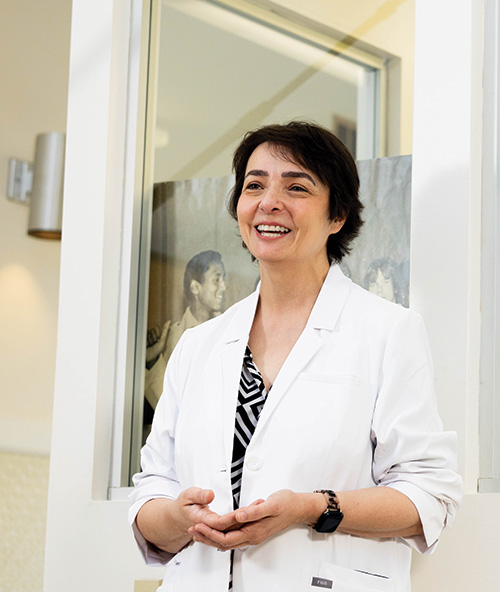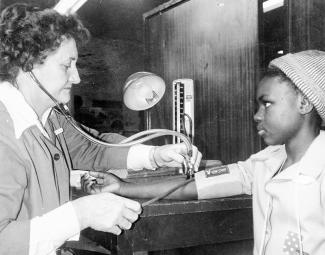The Bogalusa Heart Study has included more than 16,000 participants since it was started by pediatric cardiologist and Tulane University graduate Dr. Gerald Berenson (A&S ’43, M ’45). The data collected continues to be vital to research around nutrition, childhood obesity and genetic risk factors.
While the longevity of the Bogalusa Heart Study can be partly attributed to the dedication of its researchers, the study’s historic streak may have ended long ago without its deep roots in the community.
Joe Culpepper, a native and former police chief of Bogalusa, was 11 years old when he and 5,000 other children first began receiving health screenings in 1973. A long white trailer of lab equipment pulled up to his elementary school. Researchers organized students into groups with bracelets of colored yarn. Blood pressure was checked. Weight was measured. Blood was drawn.
The checkups continued as years went on, but Culpepper had no idea that the findings of the study would have global implications.
“I still go to get tests done. One of my brothers is still actively participating. Friends in Baton Rouge occasionally come back to Bogalusa to participate, and my sister-in-law now manages the lab,” Culpepper said. “We’re all proud of the study, and the medical knowledge gained from studying folks like me our whole lives hopefully makes things better for the kids coming up.”
At the Bogalusa Heart Study lab, two current employees are former participants in the study. Another, Phylis Cothern, has been a lab technician for 10 years, but before her, her mother began working for the study in 1972, when the pilot was underway. Now, Cothern’s two daughters and her granddaughter are study participants.
“We depend on the community and the community depends on us. It’s overwhelming the amount of good this study has done for the community, but I’m just honored to be a part of the legacy,” Cothern said.

































































